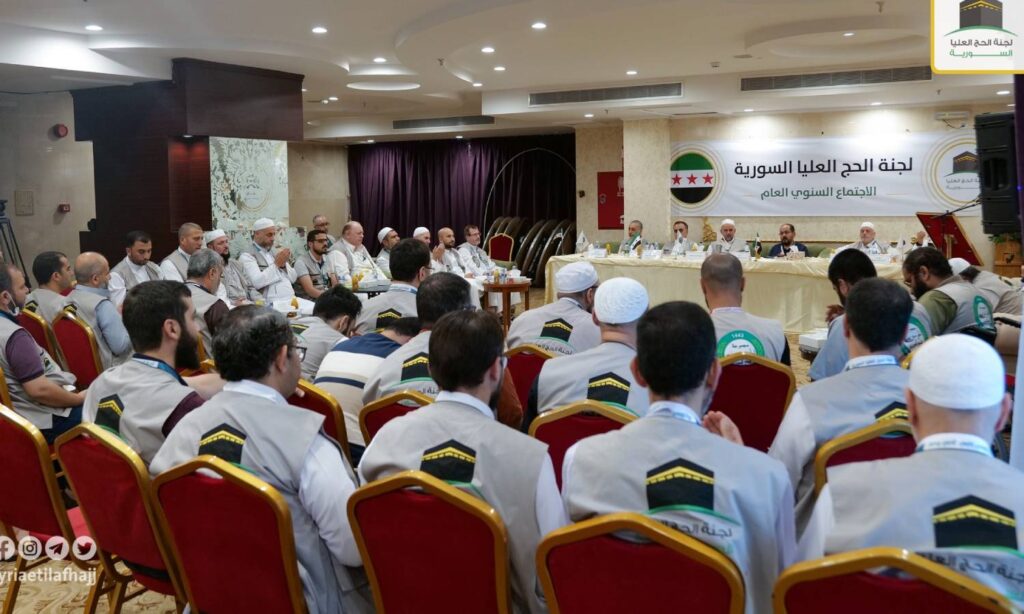The Supreme Hajj Committee, affiliated with the opposition’s Syrian National Coalition (SNC), announced that it would limit its work to northern Syria and Turkey only, two days after the Syrian regime announced it would take over the Hajj and Umrah file for the first time in 12 years.
According to a statement obtained by Enab Baladi from the communication official at the Syrian Pilgrims’ Affairs Office at the Saudi Ministry of Hajj and Umrah, on Tuesday, April 2, the Saudi Ministry of Hajj and Umrah has decided to authorize the committee to manage the Hajj file and serve the Syrian pilgrims residing in northern Syria and Turkey independently and directly, to enable them to perform the Hajj with ease and convenience.
The committee did not specify the number of Syrians who will be allowed to perform the Hajj, indicating that the registration dates, conditions, and payment mechanisms will be announced shortly thereafter.
The Supreme Hajj Committee has been responsible for arranging the Hajj groups from Syria and neighboring countries through offices established for this purpose since 2013.
The committee’s takeover of the Hajj file came after Saudi Arabia cut ties with the Syrian regime due to its security approach to the Syrian revolution, before both sides normalized their relations in 2023.
Two days ago, the Ministry of Religious Endowments in the Syrian regime’s government announced the opening of registration for the Hajj season for the first time in 12 years.
In September 2023, the Saudi embassy issued electronic visas to Syrian Umrah pilgrims through private contracted agencies with tourist offices in Syria.
This came after the Syrian ambassador in Riyadh, Ayman Soussan, stated in remarks carried by the local Al-Watan newspaper at the beginning of last February, that Syrian pilgrims would start their Hajj journey from Syria under the management of the Ministry of Religious Endowments, after 12 years of the file being taken away from the government.
On August 28 of last year, the Ministry of Tourism, in cooperation with the Ministries of Religious Endowments and Health, and the Central Bank of Syria, organized a workshop to define steps for the resumption of Hajj and Umrah activities starting from areas under regime control and the regulations for travel and tourism agencies and institutions.
Since 2013, the Supreme Hajj Committee affiliated with the opposition’s Syrian National Coalition (SNC) has been managing the Hajj file in coordination with the Saudi Ministry of Hajj, with diplomatic relations halted since that time until 2023 between Saudi Arabia and the Syrian regime.
Since the end of the last Hajj season, Umrah trips through private tourist offices in Syrian governorates under regime control have become active, starting from Jordan or Lebanon, by air or land, as monitored by Enab Baladi.
Statement from the Syrian Supreme Hajj Committee on limiting its activities to northern Syria and Turkey (Supreme Hajj Committee)











